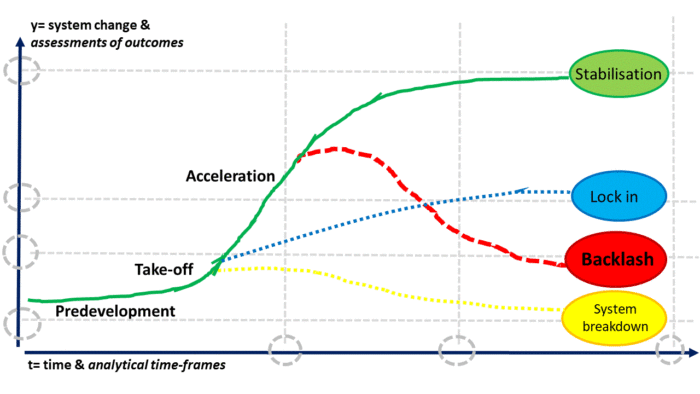Transition ‘backlash’
Towards Explanation, Governance and Critical Understanding
december 2021
Pel, B. (2021), Transition ‘backlash’: Towards Explanation, Governance and Critical Understanding, Environmental Innovation and Societal Transitions, Vol. 41: 32-34
Transitions research needs to engage more thoroughly with dynamics of ‘backlash’: Transition trajectories that, after initial diffusion, stagnate and subsequently relapse in terms of intended system change.
Pel, B. (2021), Environmental Innovation and Societal Transitions, Vol. 41: 32-34
Transitions research needs to engage more thoroughly with relapses in transitions. Particularly salient are the dynamics of ‘backlash’: Transition trajectories that, after initial diffusion, stagnate and subsequently relapse in terms of intended system change. Due to preoccupations with desirable transitions and virtuous S-curves, the phenomenon is seldom addressed head-on. This viewpoint article stresses the need for dedicated middle-range theory explanations, identifying the underlying critical conditions and social mechanisms. This would inform governance strategies to anticipate, avoid, dampen or cope with backlash. For further theory development it is useful to combine innovation-oriented transitions research with various stability-oriented strands of social theory. Critical analyses of institutional contradictions, cognitive dissonance and behavioural reactance help to detect individual, organizational and systemic sources of backlash. Further research crucially requires critical understanding and unpacking of the concept: Resting on assumptions about system changes and time-frames, diagnoses of ‘backlash’ are never self-evident.

